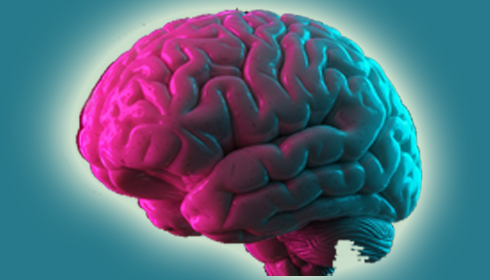
Type 2 Diabetes May Reshape the Brain and Increase Alzheimer’s Risk: Study
Research conducted by the University of Nevada (UNLV) indicates that type 2 diabetes may alter brain function in a manner similar to the initial phases of Alzheimer’s disease. The research examines the anterior cingulate cortex (ACC), a brain region associated with motivation, emotional regulation, and decision-making processes. The study examines the interaction between the ACC and the hippocampus, a region critical for memory and spatial awareness.
In studies involving diabetic rodent models, researchers found that elevated blood sugar levels resulted in a diminished function of the ACC. The observed weakening led to diminished reward signals and compromised memory processing capabilities. These changes resemble those observed in the initial phases of Alzheimer’s disease, indicating a potential connection between Type 2 diabetes and an increased risk of developing Alzheimer’s. Research indicates that individuals with diabetes face a 65% increased risk of developing Alzheimer’s disease when compared to those without diabetes.
The UNLV team outlines the significant influence of the ACC on motivation and the processing of rewards. The anterior cingulate cortex (ACC) collaborates with the hippocampus in functioning healthy brains. The hippocampus is responsible for processing information related to our spatial orientation and contextual awareness, whereas the anterior cingulate cortex (ACC) plays a role in interpreting our actions and experiencing rewards. In the brains of individuals with diabetes, this crucial communication is impaired. Lead researcher Professor James Hyman noted, “Diabetes may be altering the brain similarly to early stages of Alzheimer’s disease.”
The study indicated that diabetic rodents exhibited a greater anticipation for rewards, such as sweet treats, compared to their healthy counterparts. After receiving the reward, the diabetic rodents did not take a moment to enjoy the experience as their healthy counterparts did; rather, they swiftly proceeded to the next reward. This behaviour suggests that elevated blood sugar levels could negatively affect the brain's reward system, potentially leading to a condition referred to as anhedonia, characterised by an inability to experience pleasure. Anhedonia frequently presents as a symptom in individuals with both depression and Type 2 diabetes.
Secondary data supports the findings. Diabetes affects approximately 10% of the global population, with Type 2 diabetes accounting for 90% of these instances. This condition is associated with obesity and has the potential to result in significant health complications, such as long-term damage to nerves, blood vessels, and multiple organs. Research has explored the connection between diabetes and neurodegenerative disorders, including Alzheimer’s, for several years. This research is notable as it represents the first examination of the ACC and its involvement in the process.
The researchers noted that the relationship between the hippocampus and the anterior cingulate cortex could serve as a potential target for developing new treatments. Professor Hyman stated, “We believe the hippocampus informs the subject of its location, while the ACC indicates what the subject is doing and that it is receiving a reward.” Under optimal conditions, these brain regions collaborate effectively to create memories associated with rewarding experiences. In conditions of diabetes, this circuit experiences disruption, potentially contributing to the increased susceptibility of diabetic patients to cognitive decline.
This research expands upon earlier studies that have identified a correlation between diabetes and a heightened risk of developing Alzheimer’s disease. The current study indicates that high blood sugar levels have a direct impact on the brain's processing of rewards and memories. Understanding this process allows scientists to investigate potential methods for treating or preventing cognitive decline linked to diabetes. The findings indicate that lifestyle interventions, including improved diet and consistent exercise, may play a significant role in managing blood sugar levels and subsequently safeguarding brain function.
The study identifies a potential treatment target that may have implications for mood disorders. Research indicates that the anterior cingulate cortex (ACC) is associated with reward processing and emotional regulation. Therefore, interventions designed to enhance the connection between the ACC and hippocampus may be beneficial in addressing conditions such as depression, frequently observed in patients with diabetes.
Although the study’s findings show potential, Professor Hyman emphasises the necessity for additional research. “Alzheimer’s disease often remains unrecognised for many years, as the brain effectively develops mechanisms to adapt.” Prior to diagnosis, individuals exhibit typical behaviours, even in the presence of alterations in information processing. He stated that he observed it in this study. This statement highlights the intricacies involved in the early diagnosis of Alzheimer’s and emphasises the significance of comprehending the potential role of diabetes in accelerating this condition.
This research represents a notable advancement in understanding the intricate connection between type 2 diabetes and cognitive decline. The study highlights the relationship between the ACC and the hippocampus, potentially paving the way for early intervention strategies that may have a significant impact on millions globally. The findings highlight the necessity for enhanced lifestyle management and specific therapies to address the elevated risk of Alzheimer’s in diabetic patients.